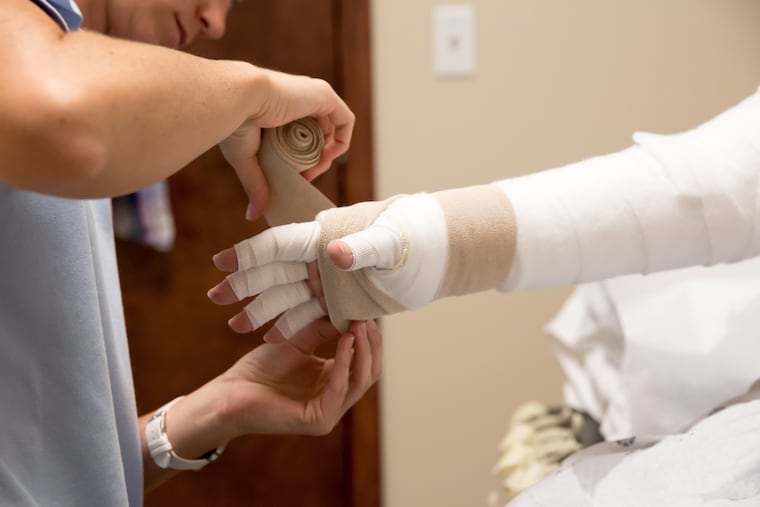Q&A: What is lymphedema?
Lymphedema, a chronic condition of the lymphatic system, is the collection of excess lymphatic fluid in tissues, which causes swelling.

Q: What is lymphedema and how is it treated?
A: Lymphedema, a chronic condition of the lymphatic system, is the collection of excess lymphatic fluid in tissues, which causes swelling.
The lymphatic system is a network of tissues and organs that help rid the body of toxins, waste and other unwanted materials, such as bacteria and damaged cells. It is vital for immune function and lymphatic fluid transport throughout the body.
Lymph nodes are small glands that filter substances that travel through lymphatic fluid. Lymphedema is caused when lymph nodes suffer damage or trauma, allowing excess lymphatic fluid to build up in tissues. Breast cancer treatment is a common cause of lymphedema, but treatment for any type of cancer that includes radiation therapy, surgery or lymph node removal also can lead to the condition.
Other causes of lymphedema include ovarian cancer, pancreatic conditions, chronic venous insufficiency, immobility, spinal cord surgeries, and even too-tight bandages.
In earlier stages of lymphedema, people experience light swelling, heaviness and aches, usually in the arms or legs. In later stages, symptoms include swelling that won’t go away, increased tightness in extremities, and increased redness and soreness of skin.
Recovery from lymphedema looks different for each patient; a specialist can evaluate patients for the most effective treatment option, which could last weeks or months, depending on the severity.
There is no cure for lymphedema, but it can be controlled. These are some of the common treatment options:
Manual lymph drainage is a hands-on massage therapy to assist fluid movement from the congested area to unaffected lymph vessels for drainage.
Compression therapy utilizes bandages and compression garments to help decongest the affected area.
Decongestive exercises involve moving and stretching the affected extremity, which can lessen swelling and pain.
Many people go undiagnosed with lymphedema for significant periods of time, allowing the condition to quickly advance, even potentially leading to infections — due to the lack of blood flow and increased swelling — and other severe complications. Education and early detection are essential for effective lymphedema treatment.
If you are experiencing symptoms of lymphedema, talk to a specialist immediately.
Christine Heptig is an occupational therapist and certified lymphedema specialist at Nazareth Hospital.